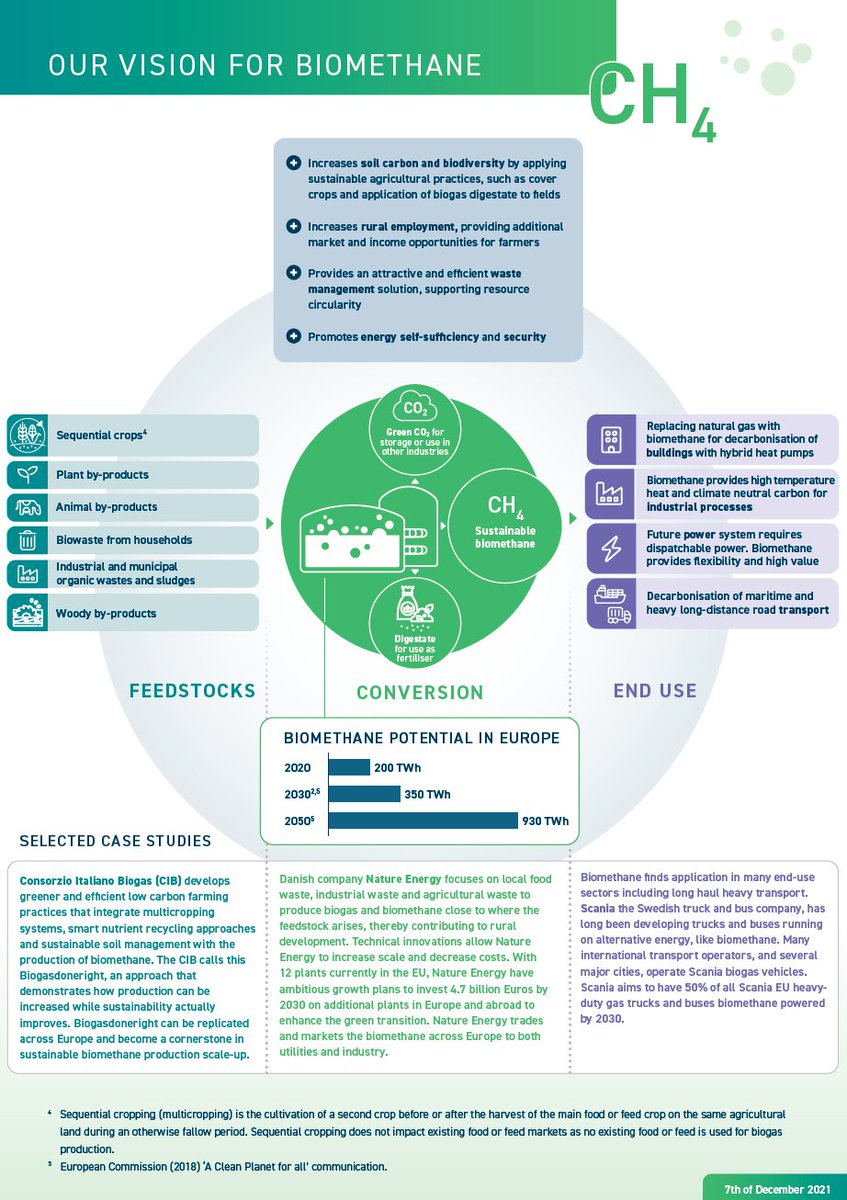
Now starting: Webinar on scaling up biomethane in Europe. With an impressive line-up of companies across the value chain, and participation of European Commissioner for Energy @KadriSimson
Supported by my colleague Daan Peters.
Supported by my colleague Daan Peters.

.@KadriSimson: In the medium and long term, we'll need to replace unmitigated natural gas and reduce methane emissions. Biomethane can play an important role here. With the second part of our #Fitfor55 package, due mid-December, we will promote biomethane production and use. 

"We see three main obstacles:
1) Biomethane is connected to the gas grid at distribution level. Need reverse flows to transport it further.
2) Upgrading to biomethane and injection into the grid needs to become cheaper.
3) We need to enable trade across EU member state borders."
1) Biomethane is connected to the gas grid at distribution level. Need reverse flows to transport it further.
2) Upgrading to biomethane and injection into the grid needs to become cheaper.
3) We need to enable trade across EU member state borders."
"We need to look at how to better optimize network planning, between electricity, hydrogen, and (bio)methane grids.
I truly believe that our reforms can help decarbonize gas, reduce import dependence, and increase resilience to gas price shocks."
I truly believe that our reforms can help decarbonize gas, reduce import dependence, and increase resilience to gas price shocks."
"The current energy crisis emphasizes the need to speed up the energy transition, renewables and energy efficiency. We look forward to your continued supportt, and to work with you on making this happen."
.@GRTgaz's @ThTrouve presents the Biomethane Declaration by 26 companies to Commissioner @KadriSimson, committed to support scaling up biomethane in the EU. 

Impressive list of companies and organisations supporting the biomethane initiative, from supply, transport, and demand sides. 

.@KadriSimson responds: "I am happy with your initiative. Reducing the imports of fossil fuels is now a very clear benefit of EU renewable and low-carbon gases. Biomethane can play a role in decarbonising industry, but also in heating of homes, alongside electric heat pumps."
PS Decarbonisation isn't really the right word here ;)
Using biomethane replaces emissions of fossil CO2 by biogenic CO2, taken up by the plants it comes from at the same time, with net-zero effect on atmospheric CO2.
Using biomethane replaces emissions of fossil CO2 by biogenic CO2, taken up by the plants it comes from at the same time, with net-zero effect on atmospheric CO2.
When combined with reducing agricultural methane emissions, using biomethane is a double win for the climate. Of course, as with all methane, any leaks in production, transport, and use have to be minimized to a very low percentage.
Signatories of today's Biomethane Declaration: @NGFNatureEnergy @suez Iniziative biometano @GRDF @ArlaFoodsUK @IVECO @ueccspain @RWE_AG Hutira @GasforClimate @VolvoTrucks @SSAB_AB Heppner @nyklineofficial @ScaniaGroup Revis bioenergy @European_Biogas ACT @MarsGlobal, ..
Signatories of today's Biomethane Declaration (2/2):
.. Costa Group @HAVItweets @ENGIEgroup @COPACOGECA @STXServices @wartsilacorp @MSCCargo @CarrefourGroup
.. Costa Group @HAVItweets @ENGIEgroup @COPACOGECA @STXServices @wartsilacorp @MSCCargo @CarrefourGroup
The recording of the Biomethane Declaration webinar, with Commissioner @KadriSimson, Teréga's @DominiqueMockly, GRTgaz's @ThTrouve, @Arla_Foods, Hutira e.a. can now be found here: register.gotowebinar.com/recording/1408…
• • •
Missing some Tweet in this thread? You can try to
force a refresh













